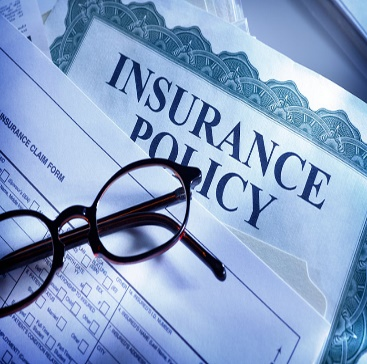Property and Casualty Division

Frank Gomez
Property Casualty Manager
Phone: (305) 416-1740
Email: fgomez@miamigov.com
The Property and Casualty Division is responsible for the placement of all property and casualty insurance policies for all City owned facilities, including an excess casualty component which provides relief for those catastrophic losses that go beyond the limits of sovereign immunity as per applicable statute.
The function of the Division also expands to the evaluation and preparation of insurance requirements, certificate compliance, and the review and approval of City contracts in conjunction with the City Attorney’s Office.
In addition, the Division undertakes the handling of all in house automobile and property damage general liability claims, along with subrogation opportunities arising from accidents or incidents as a result of third party negligence.
The Division further participates in the review of contracts from its City’s instrumentalities, and serves as a liaison with all City Departments in the resolution of insurance matters, coverage disputes, risk transfer, and the overall procurement compliance regulations and procedures. This process serves to reduce the City’s exposure to liability claims and lawsuits arising from the activities and operations of independent contractors, and vendors.
Automobile Liability Program

A. Purpose
This program provides protection for the City and its employees for claims made against the City by members of the public arising out of bodily injury or property damage caused by or alleged to have been caused by a City vehicle.
B. Examples
1. A City vehicle strikes a vehicle or pedestrian.
2. A City vehicle strikes a private structure or building.
3. An object falls off the truck and strikes a vehicle or pedestrian.
C. Reporting Procedures
1. Automobile liability losses or accidents should be reported to Risk Management in a timely manner at (877) 647-4545.
2. Written reports should be completed by the employee or supervisor and submitted as soon as possible, preferably within 2 to 3 working days after the accident.
3. The notification to Risk Management should contain:
a. Name, address and telephone number of claimant.
b. Location of accident.
c. Description of accident.
d. Name, address and telephone number of any witnesses.
D. Important Responsibilities of Employees
1. A City vehicle involved in an accident should not be moved until so directed by the Police Department when they respond to the scene. If the damaged vehicle is obstructing traffic, the driver is obligated under Florida law to move the vehicle and allow for the regular flow of traffic. This should be accomplished only after photographs are taken for documentation. Also, if you have traffic cones, flags, barricades, etc., or have an emergency beacon on your vehicle, you are required to use these to help identify the accident scene.
2. The accident must be reported to the Police Department immediately.
3. The department director or supervisor to which the vehicle belongs must be notified immediately. The department director or supervisor will then notify Risk Management if required.
4. Employees involved in an accident have the responsibility of obtaining the name, address, and telephone number of all involved parties, including witnesses, and asking them remain at the scene to speak with the police investigator.
5. No matter what the circumstances surrounding the accident may be, the City employee is never to make an admission of liability to any of the parties involved in the accident. This judgment shall be made by the Risk Management Division.
Vehicle Collision and Comprehensive Program

A. Purpose
This program provides for the repair of damages to City vehicles arising out of automobile accidents and vandalism.
B. Examples
1. Another vehicle strikes a parked City vehicle.
2. City vehicle is vandalized or stolen.
3. City vehicle’s windshield broken by flying rock or debris.
C. Reporting Procedures
1. Vehicle collision and comprehensive losses or accidents should be reported to Risk Management on a timely manner.
2. Written reports should be completed by the employee or supervisor and submitted as soon as possible, preferably within 2 to 3 working days after the accident.
D. Important Responsibilities of Departments
1. Following the steps outlined under Reporting Procedures.
2. If the accident causes an injury to a City employee, a Notice of Injury Report must also be completed.
E. Important Responsibilities of Employees
1. A City vehicle involved in an accident should not be moved until so directed by the Police Department when they respond to the scene. If the damaged vehicle is obstructing traffic, the driver is obligated under Florida law to move the vehicle and allow for the regular flow of traffic.
This should be accomplished only after photographs are taken for documentation. Also, if you have traffic cones, flags, barricades, etc., or have an emergency beacon on your vehicle, you are required to use these to help identify the accident scene.
2. The accident must be reported to the Police Department immediately.
3. The department director or supervisor to which the vehicle belongs must be notified immediately. The department director or supervisor will then notify Risk Management if required.
4. Employees involved in an accident have the responsibility of obtaining the name, address, and telephone number of all involved parties, including witnesses, and asking them remain at the scene to speak with the police investigator.
5. Every City vehicle involved in an accident must be reported to Fleet Services for evaluation of damages.
Property Insurance Program

A. Purpose
This program provides protection to the City from losses to tangible property arising out of fire, wind, flood, explosion, riot, vandalism, etc. for all buildings and contents.
B. Examples
1. A building is damaged or destroyed by fire.
2. A building is damaged by an automobile.
3. Property is damaged or destroyed by flood waters.
C. Reporting Procedures
1. Property losses or incidents should be reported to Risk Management on a timely manner.
2. All losses should be promptly reported to the Risk Management Division at (305) 416-1700.
3. The initial notification should contain:
a. Location of incident.
b. Description of loss.
c. Extent of damages.
D. Important Responsibilities of Departments
1. Following the steps outlined under Reporting Procedures.
2. Immediately contact the Police or Fire Department if necessary.
3. Photographs of the damage should be made.
4. Steps must be taken to mitigate any future damage and secure the property.
5. Newly constructed or obtained City buildings should be added under this program via memo to Risk Management giving the location, description and replacement cost value of the property and contents.
Contractor Insurance and Indemnity Requirements
It is possible for the City to be held legally liable to third parties as a result of the negligence of contractors (i.e. construction services, maintenance services, trucking services, etc.) performing services on behalf of the City. To protect the City from these exposures, the Property and Casualty Unit takes on the responsibility of implementing insurance requirements in order to adequately capture, isolate, and transfer exposure, and thereby safeguard the City’s interest from possible legal liabilities.
Risk Management through its Property and Casualty Unit undertakes review and approval all Insurance Requirements specified in City contracts, along with Certificates of Insurance from contractors or City vendors.
These guidelines are intended:
1. To avoid the utilization of City self-insured coverage when a contractor should be protecting the City; and
2. To provide further protection against the negligent acts of contractors, subcontractors, or vendors in general.
Contract Insurance Requirements

1. Workers’ Compensation and Employer’s Liability Insurance
Limits: Workers’ Compensation - Per Florida Statute 440
Employer’s Liability - $1,000,000 per occurrence
Any firm performing work on behalf of the City of Miami must provide Worker’s Compensation insurance. Exceptions and exemptions can only be made if they are in accordance with Florida Statute. For additional information contact the Department of Financial Services, Workers’ Compensation Division at (850) 413-1609 or http://www.myfloridacfo.com/WC/
2. Commercial General Liability Insurance
Limits: Combined Single Limit Bodily Injury/Property Damage –
$1,000,000 per occurrence and $2,000,000 aggregate
Covering premises/operations, products/completed operations, independent contractors, and contractual liability.
This coverage must include:
a. Coverage for the liability assumed by the contractor under the indemnity provision of the contract.
b. Coverage for Premises/Operations
c. Products/Completed Operations
d. Broad Form Contractual Liability
e. Contingent and Contractual Exposures
f. Owners and Contractors Protective Liability Policy.
g. Coverage for hazards commonly referred to as “Explosion, Collapse and Underground” exclusions.
h. Primary Insurance Clause Endorsement
I. Personal Injury and Advertising Liability
3. Automobile Liability Insurance
Covering all owned, hired and non-owned automobiles exposures
Limits: Combined Single Limit of $1,000,000 per accident
4. Professional Liability (Errors & Omissions) Insurance
Limits: $1,000,000 per claim, $1,000,000 policy aggregate with defense costs in addition to limits
Note: Only required on contracts for consultants, advisors, professional services, etc.
5. Construction Insurance (Builder’s Risk) (Installation Floaters)
6. Owners and Contractors Protective Liability
Limits: $1,000,000 per occurrence and aggregate limits naming the City of Miami as a named insured
7. Commercial Umbrella Liability
Limits: $1,000,000 per occurrence, $2,000,000 policy aggregate
Listing the City of Miami as an additional insured.
The coverage
be excess follow form over all applicable liability policies. Higher
limits will be required depending on the scope of work.
8. Payment and performance bonds listing the City of Miami as an Obligee
The Contractor, at their own cost and expense, shall provide and maintain the applicable construction insurance until the work is accepted by the City of Miami. Said coverage shall be written for 100% of the completed value, covering the City of Miami as a named insured with a deductible as provided by contract. All premiums and deductibles shall be at the expense of the Contractor.
Note: Only required on building construction contracts.
Note:
Each situation to meet the City’s insurance requirement for coverage is unique and different and the information presented here are general in scope.
Risk Management must review and approve all Insurance Requirements specified in City contracts, and the department will reduce or increase the limits of insurance coverage on specific contracts as required to best protect the interests of the City.










